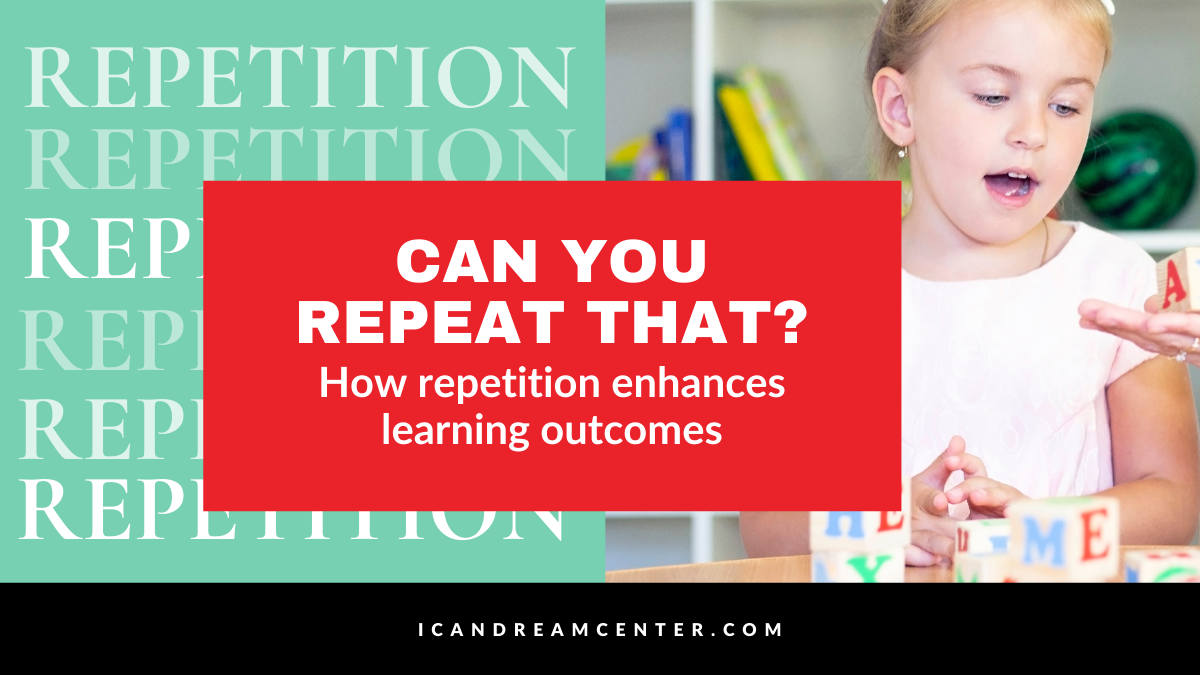
Can You Repeat That? How Repetition Enhances Learning Outcomes
The importance of repetition cannot be understated. In fact, it should be repeated that repetition is an essential learning aid. It allows a conscious skill to transfer into one’s subconscious, freeing up working memory and allowing for further skills learning (“The Power of Repetition”, 2016).
A key thing to remember about repetition is that perfect practice is what makes perfect — not just practice. Performing tasks repetitively and correctly is what helps the skills learned from those tasks set in (“The Power of Repetition”, 2016).
It is important for educators to guide repetition by ensuring that the concept of a task and its instructions are made clear. For example, to help a student understand why they should be doing something, “first, then” language can effectively communicate the consequence of the action (Long, 2017). “First, work. Then, play,” instructs the student to complete a task, and also tells them that play, or some other reward, is what follows. This explanation helps students understand why they should perform the task in the first place (Long, 2017).
Repetition sounds simple enough, but it requires a high level of patience. It can be challenging to repeatedly say the same thing to a student, but it is necessary to keep calm and maintain a level, assertive tone (Hoffman, 1960). Showing patience requires the restraint to not outwardly express frustration.
Expressing frustration, even if it is toward a situation and not a person, is enough to discourage or scare a student and interrupt the learning process (Hoffman, 1960). Also, making compromises with students teaches them the concept of reaching agreements with others and helps avoid conflict (Hoffman, 1960).
At iCan Dream Center, we remain patient and repetitive in our approach to teaching skills, and we always consider students’ emotional needs and sensitivities. We also strive to learn about a student’s interests, because having this knowledge gives us multiple options to motivate the student and helps us remain flexible (Hoffman, 1960).
Resources:
Hoffman, M. (1960). Power Assertion by the Parent and Its Impact on the Child. Child Development, 31(1), 129-143. doi:10.2307/1126389
Long, S. (2017, February 02). Why “First, Then” Actually Works. Retrieved from https://theautismhelper.com/first-actually-works/
The power of repetition. (2016). Retrieved from https://www.earlyyearscount.earlychildhood.qld.gov.au/age-spaces/the-power-of-repetition/
